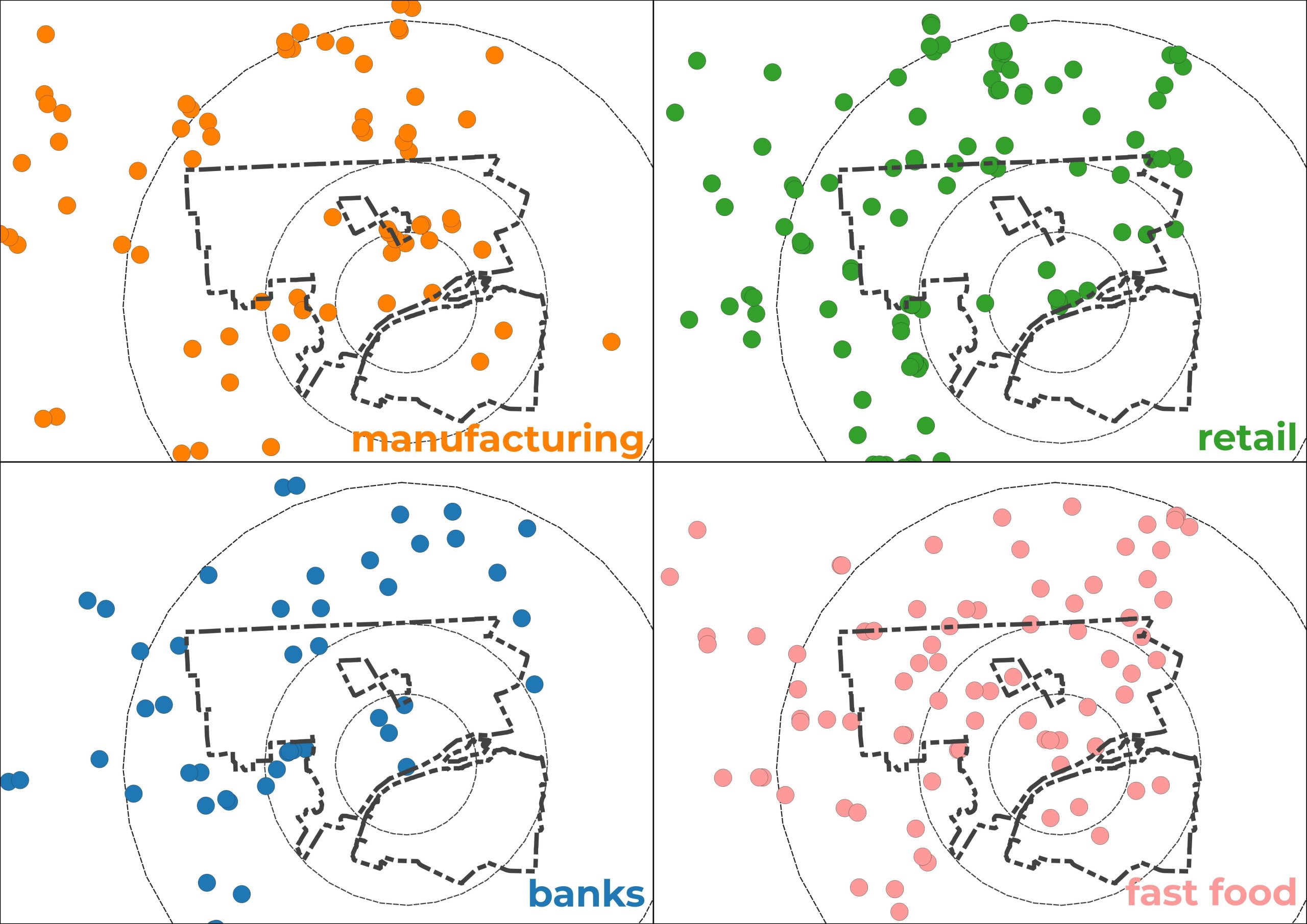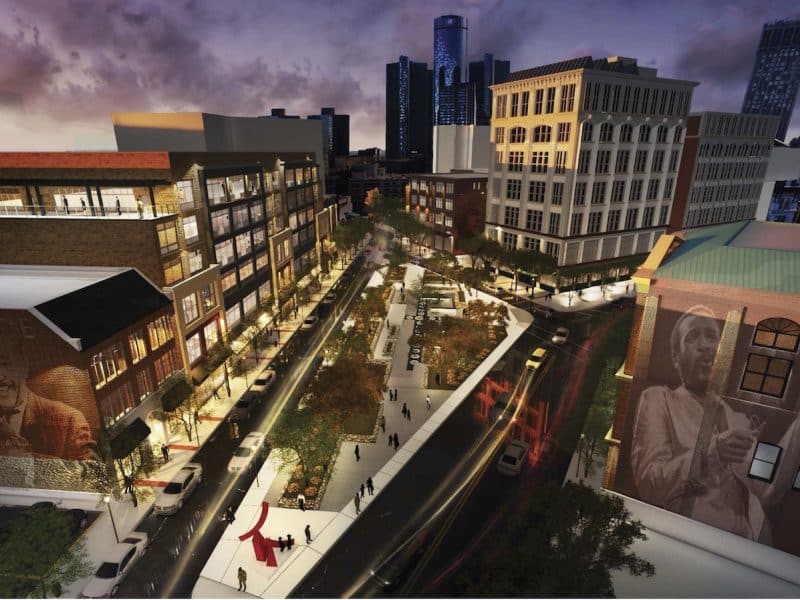Mapping Detroit: Looking at ‘business rings’ between bankruptcy and today
Detroit is a city of change, but where can you readily buy a pair of socks or a pack of T-shirts?

This is part of a series from the unofficial cartographer of Detroit, Alex B. Hill, a self-described “data nerd and anthropologist” who combines mapping, data, and analytics with storytelling and human experience. He is the founder of DETROITography and author of “Detroit in 50 Maps.”
Detroit is a city of change, but where can you readily buy a pair of socks or a pack of T-shirts?
I first mapped “business rings” of Detroit in 2014 and largely concluded that neighborhoods severely lacked retail options except for national fast food chains. Now, 10 years later, I wanted to explore what has changed and what stayed the same related to the presence of national brands’ presence in Detroit.
Retail
Downtown has benefited the most from significant investment, redevelopment, historic preservation, and large scale new construction. The new development brought in retailers like H&M, Nike, Lululemon, even Gucci. Amazon famously did not select Detroit for their HQ2 location after a concerted effort by city elites, but the company did build a distribution facility on the old Michigan State Fairgrounds as well as a distribution center downtown.
In Detroit’s neighborhoods, key retailers like convenience stores, dollar stores, and pharmacies all had mergers and closures. Convenience stores and pharmacies closed many locations leaving even more limited retail options for Detroiters. Meijer opened up two additional locations in the city since 2014 while independent grocers have been on a steady decline. Other regional retail losses included the closure of Eastland Mall (Macy’s, Target) and the Bed, Bath and Beyond bankruptcy.
Manufacturing
The Poletown Plant nearly closed before being converted into Factory Zero to produce electric vehicles. Otherwise, car building and associated suppliers are still scarce in Detroit. Other kinds of manufacturing have seen an increase in the city as corporations like Dakkota, Flex N Gate, and LEAR expanded operations into Detroit. Supposedly, a large electric battery plant is coming to the city as well. The locations mapped are based on the 2024 Crains Detroit list of top Michigan manufacturers.
Banks
In the last decade, there has been a significant amount of bank consolidation. TCF Bank bought Chemical Bank, and then that combined bank was bought by Huntington Bank. Compared to 2014, there are just 25% of bank branch locations left in the region. Fifth Third Bank has kept a downtown office, and Huntington Bank also built a headquarters in Detroit while retaining the naming rights for the facility most old-timers will forever refer to as Cobo Hall.
Fast food
Oddly, fast food in Detroit has had a reduction largely related to a Burger King franchisee losing their franchise agreement. There are empty and burned out Burger King locations across the city now compared to 2014. Other fast food hasn’t expanded much in Detroit, but regionally Chick-fil-A has been expanding.





